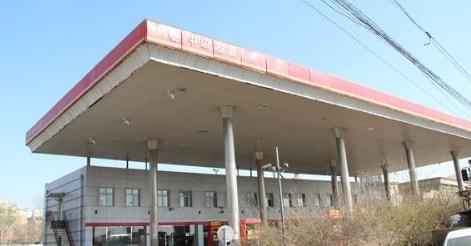Recently, the reporter was informed that the national implementation date of the five standards for gasoline and diesel for cars will be advanced from the end of 2017 proposed before the end of 2016 to the end of 2016. In this regard, there are views that the reason why the car could not fully implement the National Five Standards was because oil was not up to the standard. According to the above-mentioned news, if gasoline and diesel are upgraded in advance, the emission upgrade of gasoline and diesel vehicles may also be implemented in advance. Will automakers face increased costs and technical pressures, and will the emission upgrades of auto and diesel vehicles benefit the manufacturers of related parts and components?
  

In this regard, people with passenger car companies told reporters that at present, most of the gasoline vehicles, especially passenger vehicles, are already able to achieve the country's five emissions, so almost all can meet the requirements, and to meet the new standards, diesel vehicles may be more under pressure. According to report, compared with the National IV, the national five-gasoline vehicle is mainly regulated by stricter emission limits for nitrogen oxides, and new standards for the detection of particulate matter, including hydrocarbons other than methane and gasoline vehicles with direct injection in cylinders, have also been added. For diesel vehicles, the requirements are relatively high. Not only is the NOx emission limit rigorously 28%, but also the hydrocarbon and NOx emission limits are strictly 23%. In addition, the particulate concentration limit for diesel vehicles has increased. 82%. Not only that, there is also a particulate particle detection specifically for diesel vehicles.
However, an insider of FAW Xichai told reporters: “For large engine manufacturers, the advancement of emission standards is also good.†According to its introduction, upgrading from State IV to State V is actually a matter of technology. It is almost the same as the route from the country three to the country four. On the one hand, the high-pressure common rail technology is adopted to increase the fuel efficiency of the engine and make the combustion more efficient. On the other hand, catalytic reduction technology is used at the back end to treat and purify the discharged exhaust gas, and a particle trap DPF is added to the post-treatment. Of course, due to the introduction of new technologies and DPF's use of some precious metal materials, it will involve the electronic control system, EGR (Exhaust Gas Recirculation) upgrades and combustion optimization, which will result in increased costs.
Yang Honghai, director of public relations for SAIC Commercial Vehicles, told reporters that the cost is between 15,000 and 20,000 yuan. In spite of this, in the eyes of the above-mentioned insiders of FAW Xichai, in the current context, buyers of commercial vehicles, especially large-scale logistics companies, are not paying much attention to the cost of a single car at the front end. "Instead, they More emphasis on the efficiency of the carrier and the use of the entire life cycle." In his view, if companies can prepare in these areas, the increase in costs will not have much impact on the end market. Not only that, the stricter standards also help the survival of the fittest in the entire industry.
“So we actually hope that emission upgrades can be implemented ahead of time and can be strictly implemented.†Yang Honghai told reporters: “The five national products of SAIC Commercial Vehicles have been listed at the end of last year. Not only that, but also in sync with overseas markets, they also have Euro VI. Technical reserve.†Prior to this, a person in the technical department of Suzhou Jinlong had talked to reporters about similar issues when he was talking about the postponement of the commercial vehicle’s four national standards.
In his opinion, "What really worries companies is not the implementation of standards, but rather the implementation of standards." The reason why this is said is that at present, although commercial vehicles in most parts of the country are still in the National IV emission stage, Beijing will implement the fifth-phase national discharge standards in full before the end of this year. This means that for commercial vehicle companies to enter the local market, they must meet this standard and invest in the corresponding costs of R&D, verification, and testing, and because it is only for the local market, this cost is difficult to be shared in the short term. Sales, so companies are very headache for this "double standard".
Unlike the diesel vehicles used in more than half of European models, the domestic models are mainly gasoline vehicles, and diesel vehicles have been burdened with “high pollution and high emissionsâ€. In view of the insiders of FAW Xichai, the main reason for the pollution of diesel vehicles is that the local oil standards are not the same and do not meet the standards.
Therefore, if we can unite and supply qualified diesel, it may be that diesel vehicles will usher in the spring. As the reporter understands, currently Bosch offers electronically controlled high-pressure common rail systems for diesel vehicles. Compared with gasoline vehicles of the same power, it can not only save fuel consumption by 25% to 30%, but also achieve 30% lower fuel consumption than gasoline vehicles. CO2 emissions. If so, in the new round of emission upgrades, foreign-owned parts and components companies that have mastered core technologies may benefit even more.
Oil Tank Trailer,Fuel Tanker Trailer,Fuel Tank Semi Trailer,Fuel Tanker Trailer For Sale
Guangzhou Maowo Machinery Technology Co., Ltd , https://www.maowogroup.com
